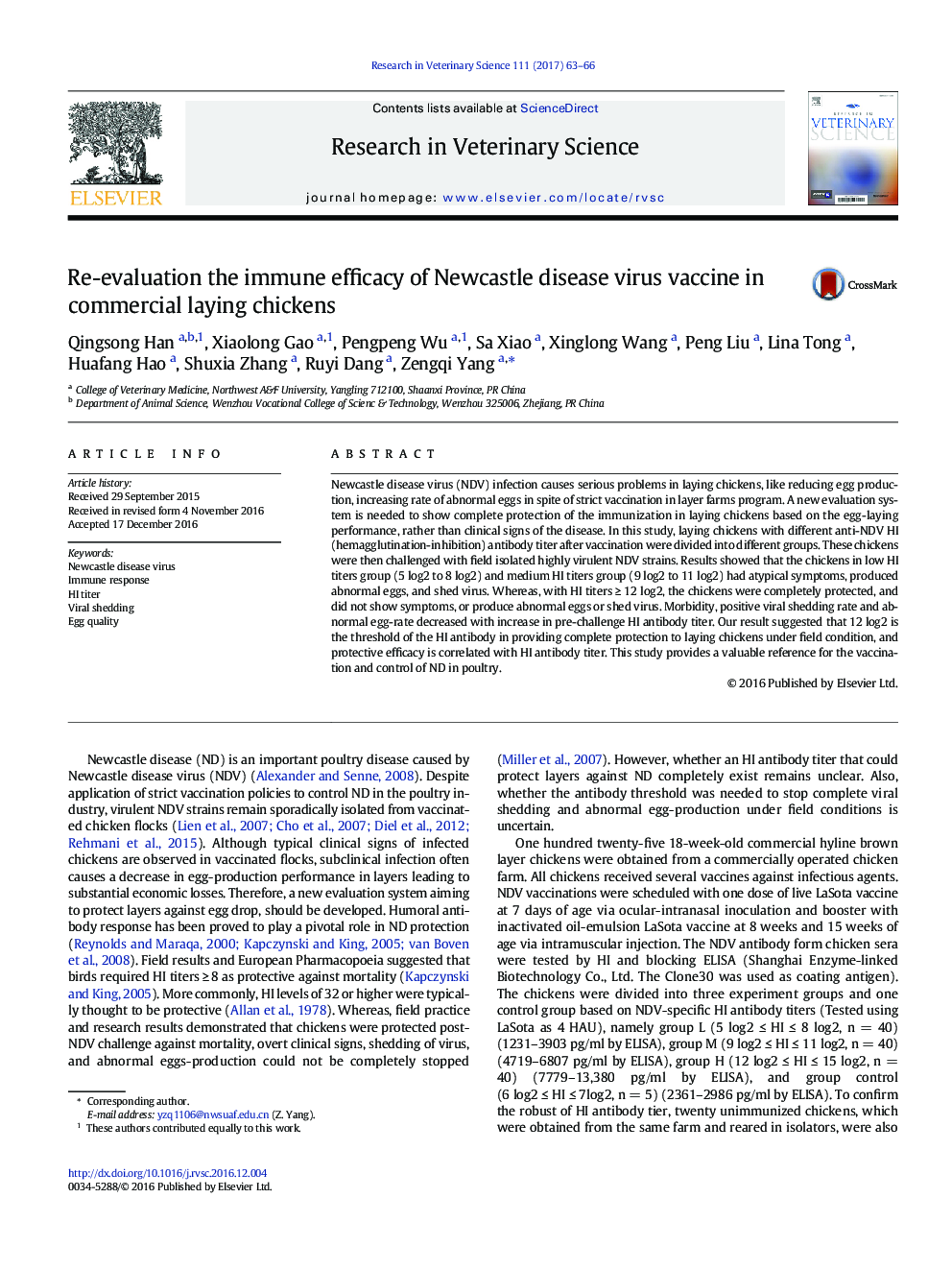| Article ID | Journal | Published Year | Pages | File Type |
|---|---|---|---|---|
| 5544029 | Research in Veterinary Science | 2017 | 4 Pages |
â¢Protective efficacy against ND is highly correlated with HI titer pre-challenge.â¢When HI titers of â¥Â 12 log2, egg quality and egg production were not affected post challengeâ¢When HI titers of â¥Â 12 log2, chickens shed no virus post NDV challenge
Newcastle disease virus (NDV) infection causes serious problems in laying chickens, like reducing egg production, increasing rate of abnormal eggs in spite of strict vaccination in layer farms program. A new evaluation system is needed to show complete protection of the immunization in laying chickens based on the egg-laying performance, rather than clinical signs of the disease. In this study, laying chickens with different anti-NDV HI (hemagglutination-inhibition) antibody titer after vaccination were divided into different groups. These chickens were then challenged with field isolated highly virulent NDV strains. Results showed that the chickens in low HI titers group (5 log2 to 8 log2) and medium HI titers group (9 log2 to 11 log2) had atypical symptoms, produced abnormal eggs, and shed virus. Whereas, with HI titers â¥Â 12 log2, the chickens were completely protected, and did not show symptoms, or produce abnormal eggs or shed virus. Morbidity, positive viral shedding rate and abnormal egg-rate decreased with increase in pre-challenge HI antibody titer. Our result suggested that 12 log2 is the threshold of the HI antibody in providing complete protection to laying chickens under field condition, and protective efficacy is correlated with HI antibody titer. This study provides a valuable reference for the vaccination and control of ND in poultry.
